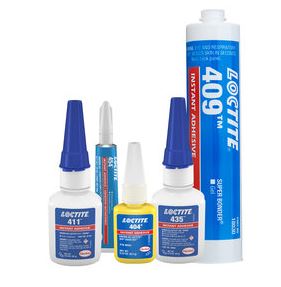 Choosing the right adhesive
Choosing the right adhesive
May 18, 2016 REDWIRE is news you can use from leading suppliers. Powered by FRASERS.
Posted by Henkel Canada Corporation
Henkel Corporation’s familiar LOCTITE® brand represents the most complete line of high performance adhesives, seal... Read more
Subscribe
Free REDWIRE e-newsletter

It’s true — adhesive bonding can be more effective, more efficient and more reliable than bolts or other assembly solutions. But to really realize these advantages, it’s critical that companies choose the most appropriate adhesive type, as each has its own pluses and minuses.
This topic was recently explored in a blog on Henkel’s website. In the post, author Michael Feeney, an application engineer with Henkel, highlights the different options available.
Consider the needs
The first step, says Feeney, is to think about the specific application needs.
- What materials are you bonding? Metal, plastic, rubber?
- What size is the gap you need to fill?
- Are there any environmental factors that the bond will face?
- What temperatures will the bond be exposed to?
- How important is fixture and cure time?
- How important is flexibility?
Consider the options
There are many options when it comes to adhesive types.
- Anaerobics: Also known as machinery adhesives, anaerobics typically augment the seal or holding force of a mechanically joined assembly. They’re used for threadlocking, retaining, thread sealing and flange sealing. Anaerobics prevent loosening from vibration, and also protect joints from corrosion or rust that can result from moisture. They cure in the absence of air and in the presence of metal.
- Cyanoacrylates: This is often considered an “all purpose” adhesive because it can bond almost anything very quickly, including polymers, rubbers, wood products and metals. However, it’s not recommended for use with glass or for joints that require large gap filling. In addition, it tends to have poor impact resistance and a shorter shelf life than other adhesives once opened.
- Epoxies: These adhesives offer high strength, chemical and heat resistance, excellent mechanical properties, and very good electrical insulating, making them ideal for the computer and electronics industries. However, they require a mixing of a hardener and resin, or heat curing, and are not recommended for many plastic types or assemblies where flexibility is required.
Additional options include two-part and two-step acrylics, SMPs, urethanes, silicone adhesives, light cure and hot melts.
With so many options, it can be challenging to know which is the most appropriate for the application. Testing is a must. Henkel tests its adhesives in virtually every application.
For additional information on how the company can help, contact Henkel.
Share
Posted by Henkel Canada Corporation
Henkel Corporation’s familiar LOCTITE® brand represents the most complete line of high performance adhesives, seal... Read more